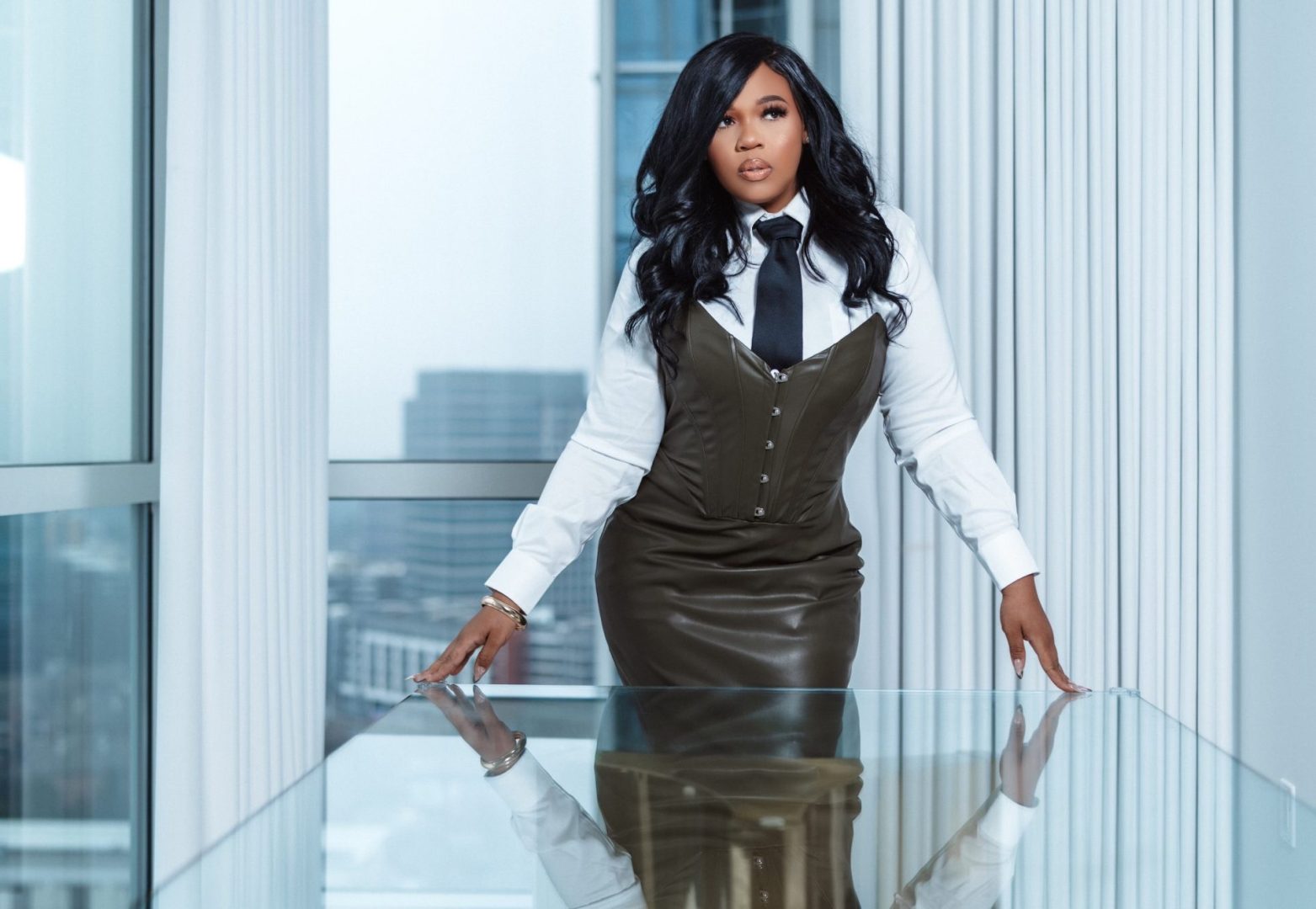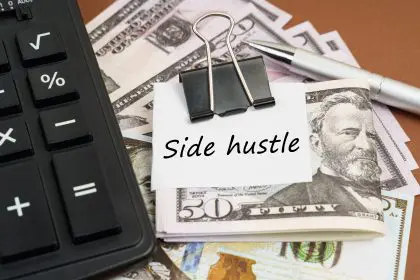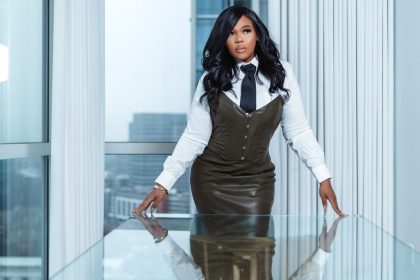In an era when entrepreneurs believe Google and AI can replace legal counsel, trademark attorney Rosezena Pierce makes a compelling case for professional guidance in protecting intellectual property.
The analogy comes quickly, delivered with the confidence of someone who has used it countless times to enlighten eager entrepreneurs: “Will you build a house on land you don’t own?” asks Rosezena Pierce, leaning slightly forward for emphasis during her interview with Munson Steed on Rolling Out’s Business Exchange.
Pierce, a trademark attorney who specializes in intellectual property protection, isn’t just posing a rhetorical question. The comparison forms the foundation of her practice and her warning to business owners who might be tempted to cut corners when establishing their brands.
The land beneath your business
“It’s the same equivalent to building a business or a brand if you actually don’t own it,” Pierce explains, “because, just like a land owner can come in and tear that beautiful house down, someone can actually come in and make you cease and desist the use of that business name if you haven’t cleared the rights.”
This practical wisdom comes from years of watching entrepreneurs make costly mistakes—investing in product packaging, marketing materials, and brand development only to discover they’ve built their business on intellectual property they don’t actually own.
For Pierce, the mission extends beyond individual clients. As a Black female attorney, she sees her role as vital to community empowerment, particularly for creators and entrepreneurs from marginalized communities who have historically seen their innovations appropriated without proper compensation.
“Especially in the beauty industry, particularly in the Black culture, we create and we inspire a lot of trends, but we are the last ones to profit from them,” Pierce notes, drawing from her previous career as a licensed cosmetologist.
The trademark labyrinth
The conversation with Steed reveals common misconceptions about trademark protection. Many entrepreneurs don’t realize that trademark law encompasses 45 different classes, 34 for products and 11 for services, allowing similar names to coexist in different industries.
Pierce illustrates this with recognizable examples, “That’s why we have chocolate, soap, Mac makeup, Mac computer, Delta airline, Delta faucet, Pandora jewelry, Pandora music.” These companies operate successfully with the same or similar names because they function in entirely different trademark classes.
To drive home the complexity, she recounts the case of LeBron James, who filed for the trademark “More Than Athlete” only to face opposition from a nonprofit organization that had previously registered the phrase in a different class for charitable services. Despite the USPTO initially approving James’s applications for entertainment services and apparel, the nonprofit is now opposing his trademarks, claiming potential confusion.
This example reveals the hidden pitfalls even sophisticated business entities with access to legal counsel can encounter in the trademark landscape.
Prevention versus intervention
Pierce distinguishes herself from attorneys who “like to fight fires,” positioning herself instead as one who prefers “to prevent the fire.” This philosophy forms the core of her practice and her pitch to potential clients.
“It’s going to cost you way way more to fight the fire,” she cautions, acknowledging that many entrepreneurs balk at legal fees but fail to consider the exponentially higher costs of litigation or rebranding if trademark issues arise after significant investment.
“We protect our cars before we drive them off the car lot,” Pierce says, suggesting intellectual property deserves the same proactive approach.
The AI attorney myth
When Steed brings up the growing reliance on technology, particularly Google and AI, as substitutes for legal counsel, Pierce acknowledges technology’s value while highlighting its limitations.
“Technology is moving faster than a lot, and AI is here to stay, but it shouldn’t be here to replace,” she says. “People can use AI as a tool, but one thing AI is going to lack is a human component.”
The attorney explains that AI cannot anticipate future business expansions or adjacent opportunities a human lawyer would naturally consider during consultation. Where AI might narrowly address the question asked, a skilled attorney envisions potential growth trajectories and ensures comprehensive protection.
“If you sit down with an attorney like myself,” Pierce explains, “I’m going to say, well, Mr. Steed, also protecting your magazine business, you also may want to launch an apparel business, but also, too, through your magazine business, you also offer coaching, you have speaking engagements.”
She concludes with the definitive limitation, “AI cannot represent you in court,” referencing American Bar Association standards.
A call for community legal empowerment
The conversation takes a more personal turn when Steed asks what Pierce would say to young women building beauty brands about the importance of working with female attorneys.
Drawing on her unique background as both a cosmetologist and attorney, Pierce positions herself as particularly suited to understand the beauty industry’s nuances. Her experience as a Black woman in both fields informs her commitment to helping creators not just develop products but protect and profit from their innovations.
When asked what she would tell young people considering legal careers, Pierce outlines three compelling reasons:
- Education, providing knowledge to a community that often lacks access to legal information
- Economic empowerment, building systems within the Black community independent of external DEI initiatives
- Legacy creation, establishing foundations for future generations
“Right now everybody is talking about rolling back these DEI initiatives,” Pierce notes, “but the fact that they’re showing us that they’re not intentional about our success as the Black community, we need to uplift and upheld ourselves.”
In a professional landscape where entrepreneurs increasingly cut corners on legal protection and rely on technological shortcuts, Pierce makes a compelling case for the value of specialized legal counsel. Her analogies resonate with clarity—the unprotected trademark as precarious as a house built on borrowed land.
For creators and entrepreneurs navigating an increasingly complex intellectual property landscape, Pierce’s warning is clear: protect what you build, or risk watching someone else profit from your creation.














